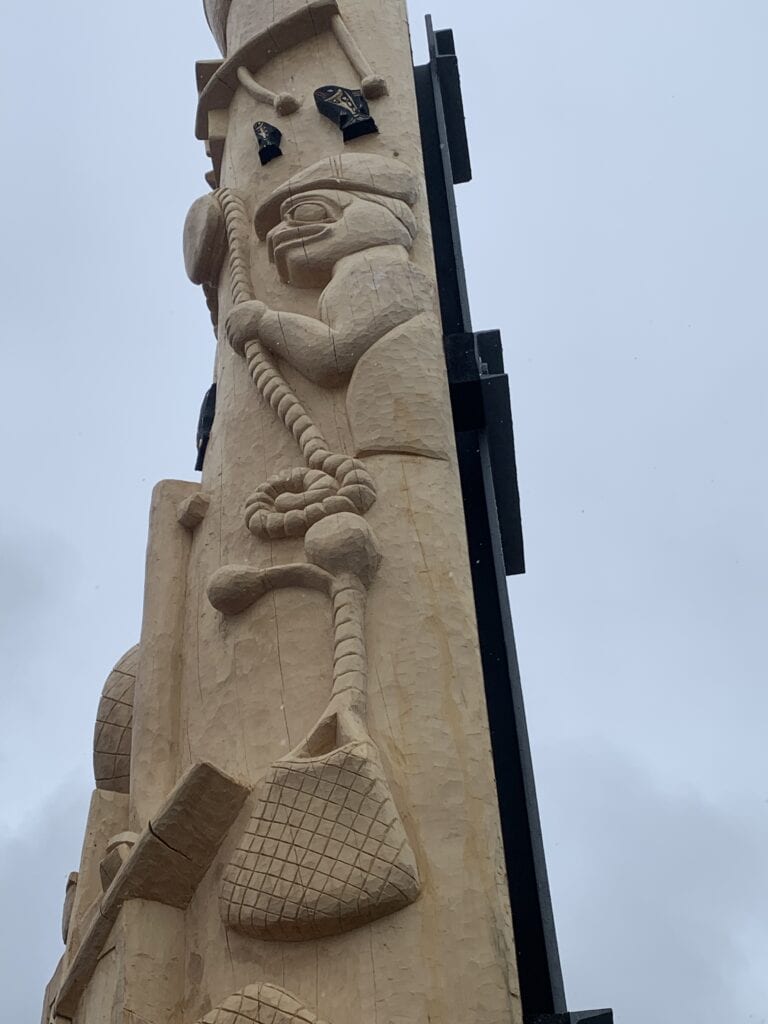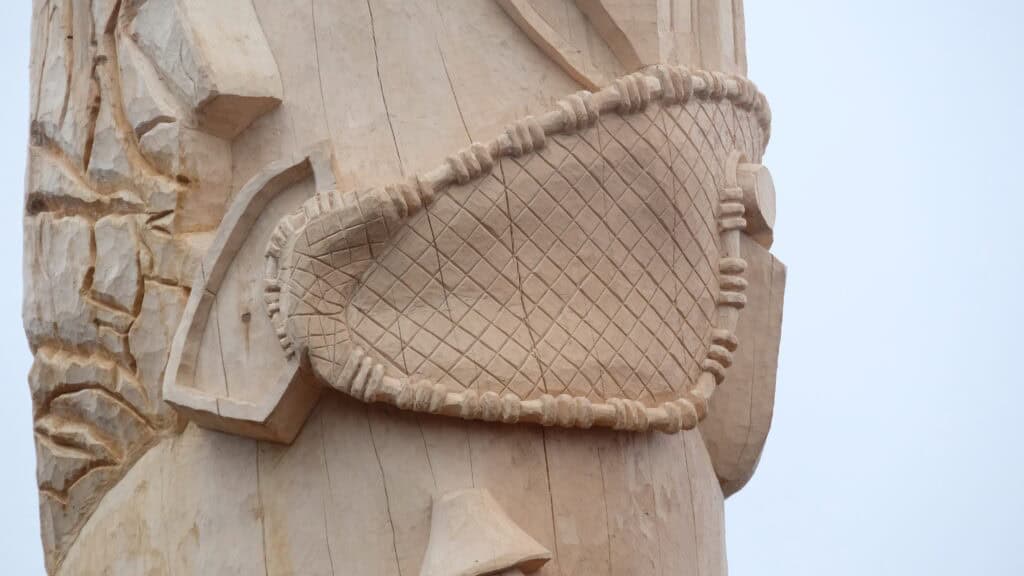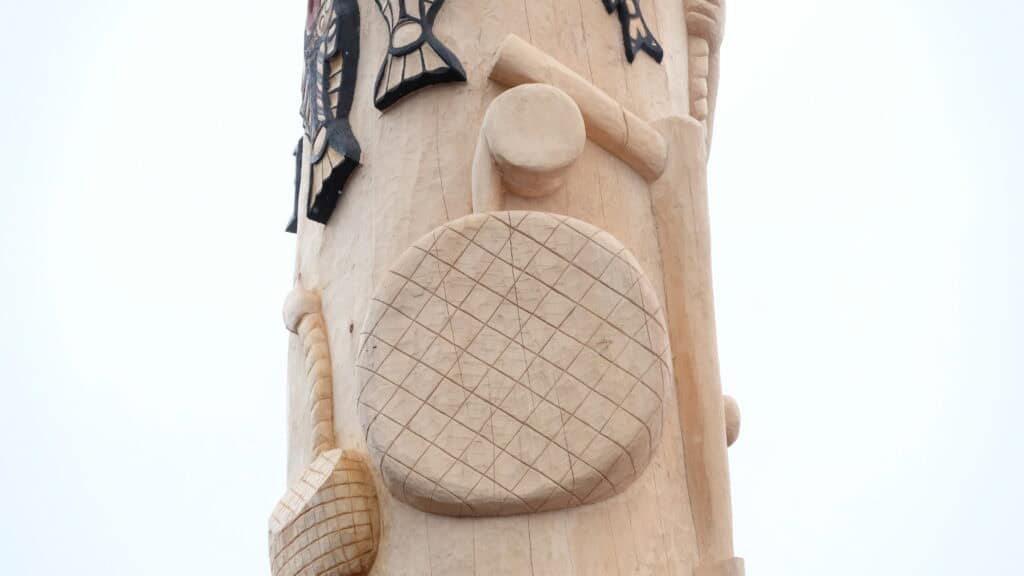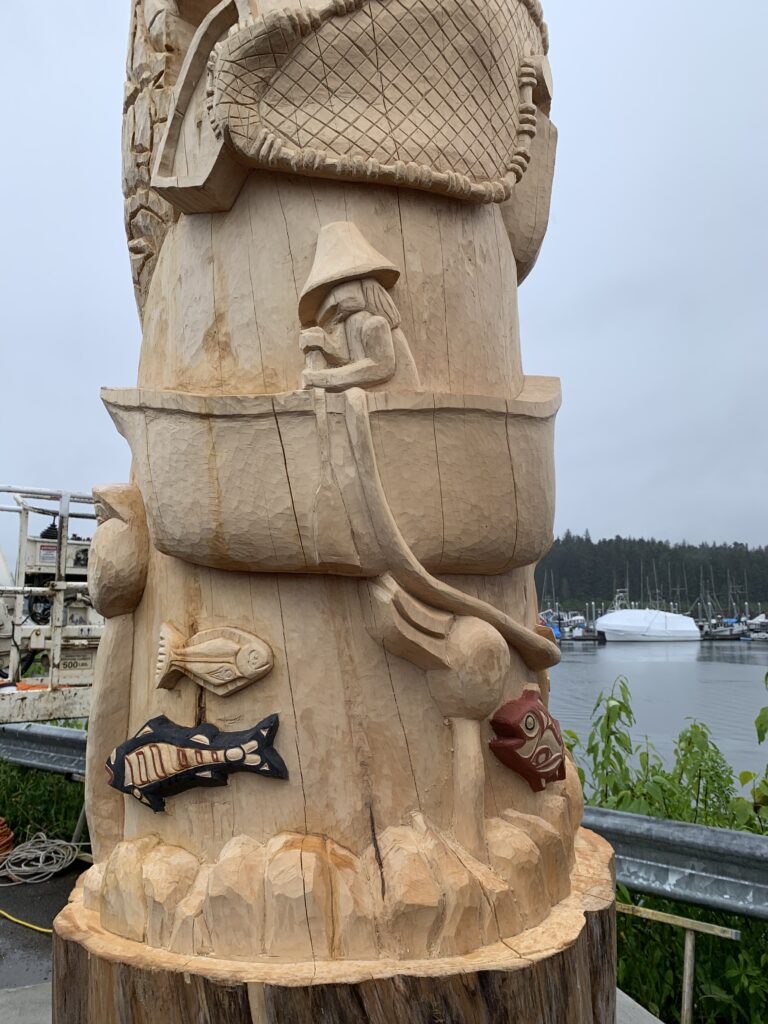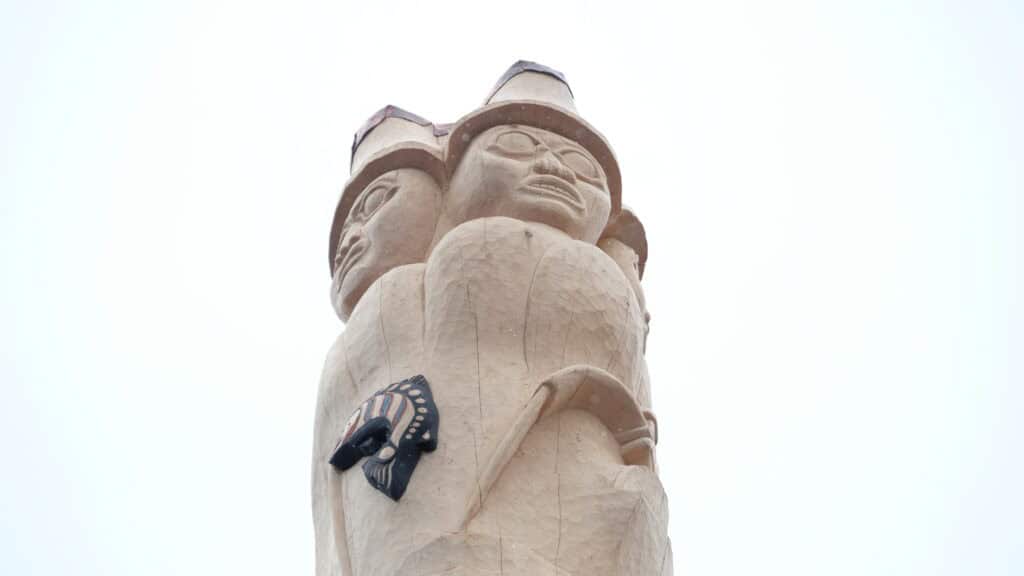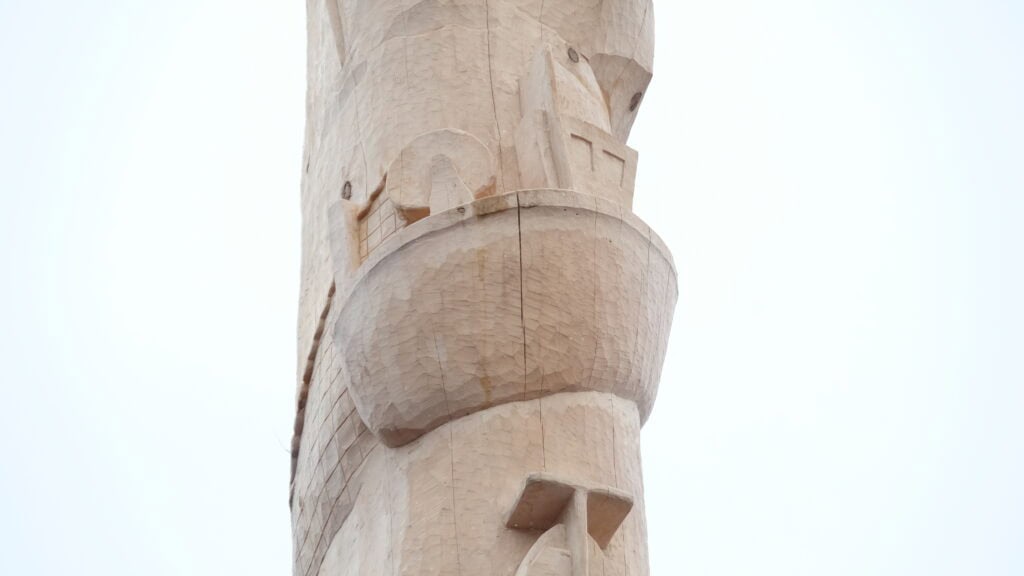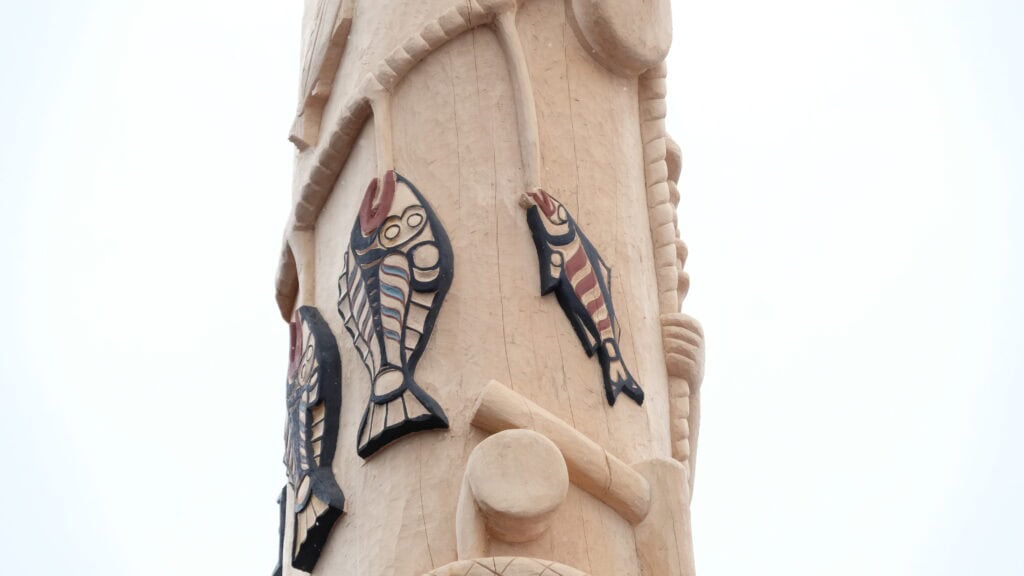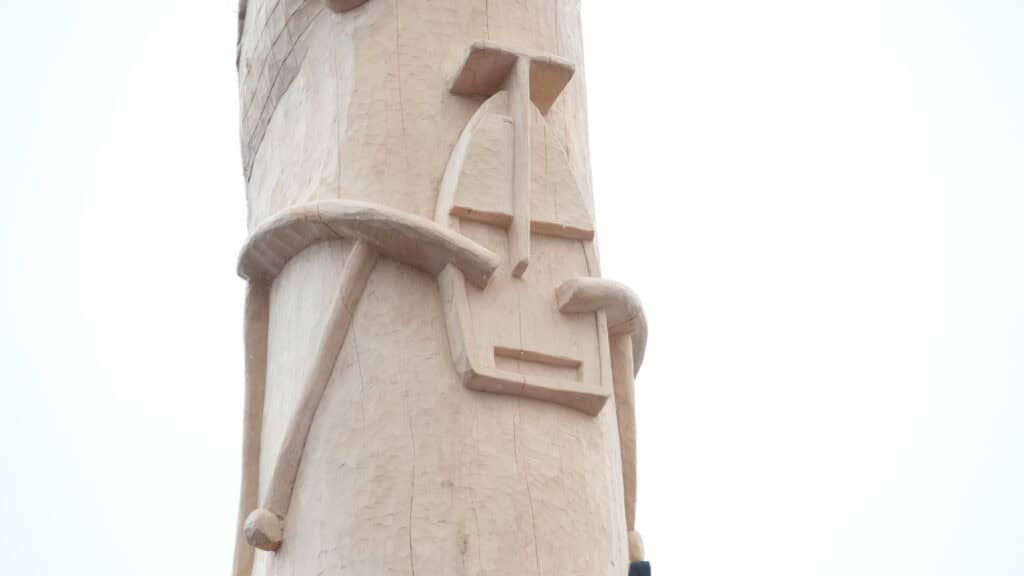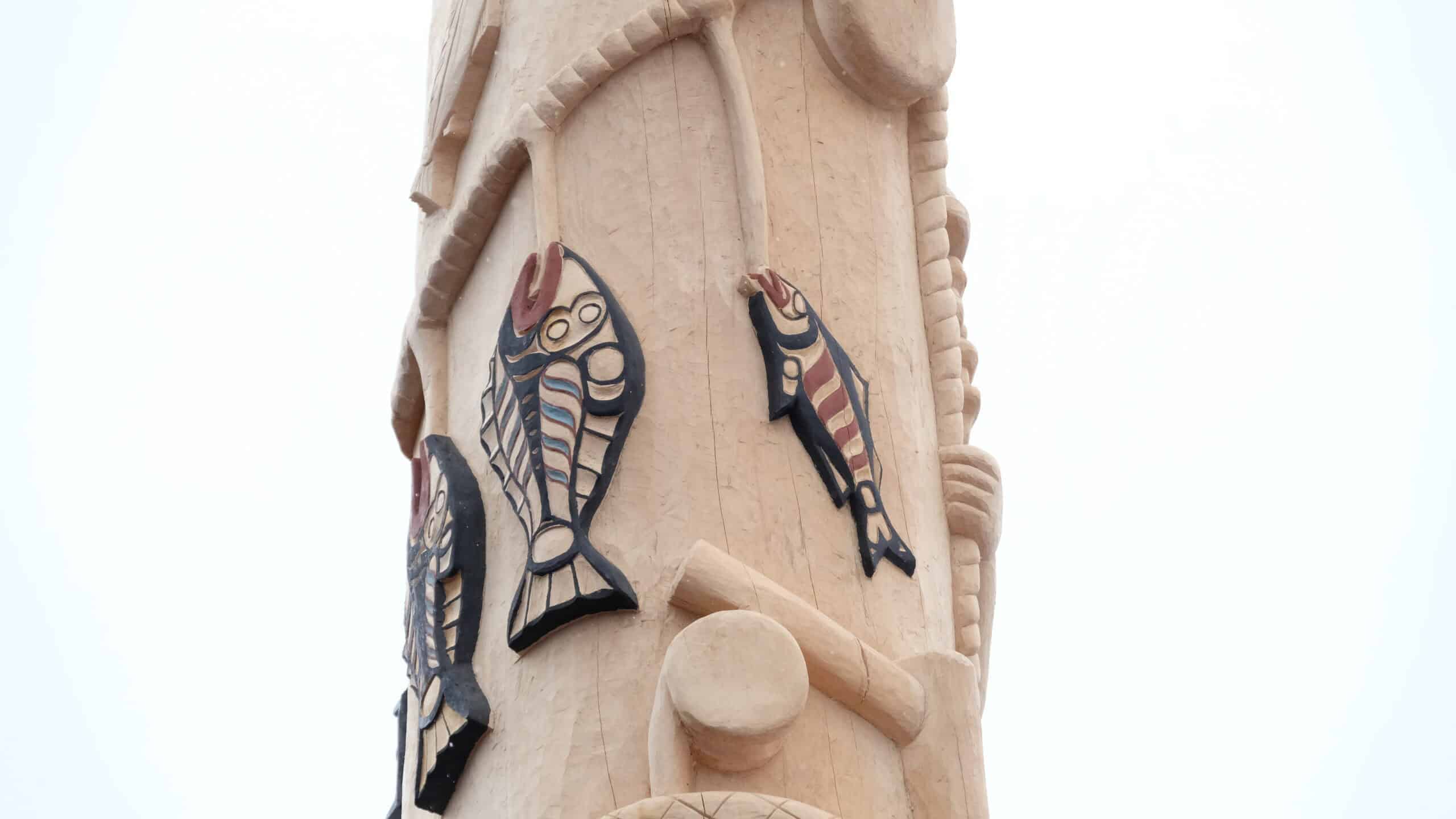As the unrelenting drizzle settled in for the day, fishermen who gathered to speak at Hoonah’s Fishermen’s Totem Pole ceremony were unphased.
“It’s fishing weather, everyone should feel right at home,” Stu Mills joked.
On Friday, March 30, 2025, the Huna Heritage Foundation and City of Hoonah unveiled the 21-foot kootéeyaa carved out of yellow cedar harvested on Chichagof Island.
Over the course of five months, Kaach Yaas Gordon Greenwald carved the pole with help from assistant Yang Dus Herb Sheakley and apprentices Whe Chee Louie White, Jr. and Kash Tinaa Cheynne Jack.
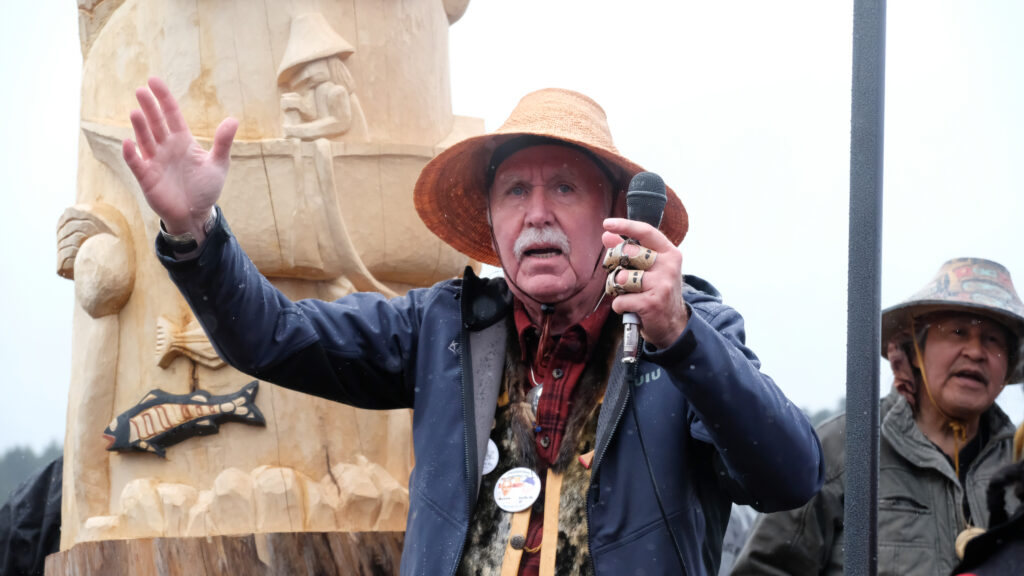
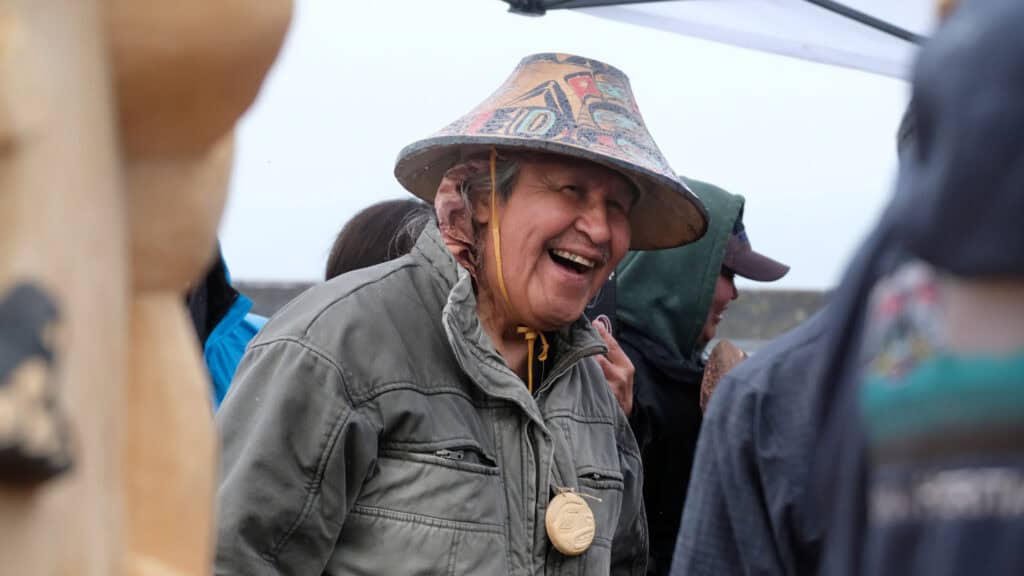
The City of Hoonah commissioned the kootéeyaa that honors the village’s roots in the fishing industry. Starting at the base with a fisherman in a dugout canoe, the pole tells the story of crabbing, long lining, purse seining, power trolling, and rod and reel fishing.
“Then at the very top, you have our family members, the Watchmen that want to make sure we all make it home safely. They’re looking in all directions to make sure when we leave the port, we will be coming back,” Gordon told the crowd.
Huna Heritage Foundation chartered a catamaran from Juneau to Hoonah for Elders and tribal citizens to attend the ceremony. Following cultural protocol, members from the Eagle clan sang a cry song, followed by a Raven cry song. Fishermen from each moiety shared stories about growing up in Hoonah, a village with a legendary fishing industry.
Gary Brown talked about growing up with his father, Archie Brown, Sr.
“He was a great fisherman. He had me fishing at 12 years old. We were fixing seines down by the cannery,” Brown said.
Frank Wright Jr. has spent 65 years making his living on the water.
“I went to college to get out of fishing,” Frank said. “Guess what I’m doing…I’m fishing.”
He reminisced about fishing Icy Strait and Inian Island, lamenting his time at sea may be coming to a close. “It’s going to hurt so much when I’m done.”
As the size of the fishing fleet wanes, the totem is a testament to a once-thriving industry ingrained in the lives of all who call Hoonah home.
“This is what you’re looking at, the Hoonah fishing people. All of us in the past, all of us in the future and all of us now,” Gordon said.
